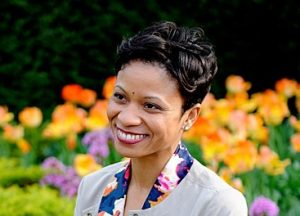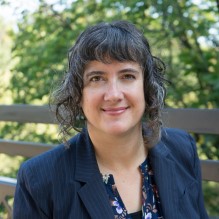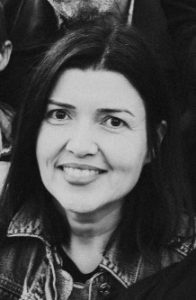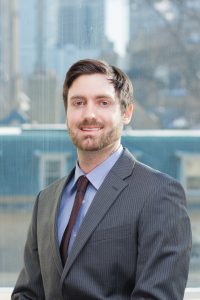Meet some of our Alumni:
Below is a list of recent graduates who specialized in the area of public policy.

Geoffrey Cameron (2018) has a PhD from the Department of Political Science at the University of Toronto. His research focuses on comparative immigration and refugee policy, religion and politics, and Canadian public policy. His dissertation, “Religion and Refugees: The Evolution of Resettlement in the United States and Canada,” examined the influence of religious groups on the development of refugee policy in the post-war period. He was a Commonwealth Scholar at Oxford University and was supported by SSHRC and the Pierre Elliott Trudeau Foundation in his doctoral research. He currently works as Director of the Office of Public Affairs of the Baha’i Community of Canada and has previously been a senior policy advisor at Global Affairs Canada. He is the co-author (with Ian Goldin) of Exceptional People: How Migration Shaped Our World and Will Define Our Future (Princeton University Press, 2012), and is presently working on a co-edited volume on private refugee sponsorship in Canada, and a monograph on religious groups and migration policy.
Why Study Public Policy? “As a public policy PhD student in the Department of Political Science, I refined my ability to understand and analyse policy processes in Canada. These analytical tools can be a valuable bridge between the core theory of comparative politics and the world of real-time decision-making.”

Nicola Hepburn (2014) is a Senior Policy Advisor at the Ontario Ministry of Finance in the Program and Policy Analytics Branch. Prior to this , she worked in the Research Services Office at Ontario Tech University, and has held policy and research positions at Scotiabank’s Government Affairs (Head Office), the Ontario Ministry of Economic Development and Innovation, the Council of Ontario Universities and the Ontario Confederation of University Faculty Associations. Nicola also worked as a Legislative Intern (2004-2005) in the offices of two backbench Members of Provincial Parliament at Queen’s Park. Her PhD dissertation explored the Ontario government’s efforts to develop policy intended to leverage the province’s research and innovation capacity and contribute to regional economic growth (2003-2011). Nicola also holds a Master’s in Public Policy and Administration and an Honours Bachelor’s in Political Science and Sociology from McMaster University. Additionally, she serves on the Board of AlphaPlus, a non-profit organization that helps adult education organizations across Ontario use technology to deliver programs that enhance digital literacy.
Why Study Public Policy? “The Public Policy subfield offered me a unique challenge, and I benefited significantly from the intellectual rigour of the courses. The lessons acquired currently informs my approach to all policy projects that I engage in to this day. Paying close attention to the relationships between key actors, ideas, structure and other contextual factors, elevated my understanding of the policy process and has equipped me with a critical lens of analysis that I use on a consistent basis.”

Heather Millar (2018) is a SSHRC Postdoctoral Fellow with the Institute for Science, Society, and Policy at the University of Ottawa. Her research examines energy and climate policy, risk perception and social acceptance of new technologies. She has published in several academic journals, including the Canadian Journal of Political Science, Canadian Public Administration, Policy Sciences, and Public Policy and Administration. Previously, Heather worked as a Postdoctoral Fellow with the Munk School of Global Affairs and Public Policy and has ten years of professional experience working in civic and community organizations in Vancouver, BC.
Why Study Public Policy? “Studying public policy at the University of Toronto was a rich and intellectually challenging experience. The program provided me with a strong foundation in the field of both comparative public policy and the politics of the policy process; the faculty is very supportive of both theoretical and methodological experimentation and innovation. Throughout my studies I was able to collaborate with faculty and colleagues on a number of research projects, resulting in the opportunity to publish in leading policy journals.”

Celine Mulhern (2007) Since defending her PhD in Canadian public policy, Celine has worked as a policy practitioner at Queen’s Park. Her journey has taken her through many parts of the civil service, including Finance, Cabinet Office, Treasury Board and Health. Her files have ranged from credit union and mortgage broker regulation, open government, poverty reduction and recently mental health and addictions policy. As her career progresses, Celine has come to value more and more her training in the Political Science Department at the University of Toronto. “Sometimes people in social science and arts aren’t aware of the marketable skills they are developing – clear writing, logical analysis, deliberative conversation, and critical thinking. And creative thinking. Today’s public policy professional needs to be comfortable in grey zones; some of the most pressing policy issues require outside the box thinking – think poverty, the ageing population and climate change, to name a few. The digital era presents amazing opportunities for government but these solutions often challenge traditional ways of thinking and doing.”
Why Study Public Policy? “Public policy professionals today must be able to have honest conversations, guided by evidence and shared priorities. The rigorous academic training provided at U of T fosters exactly this skill set and mentality.”

Matthew Wilder (2018) is currently a postdoctoral researcher and course instructor at the University of Toronto where he specialises in public policy, methods, and political economy. He is currently working on numerous projects including a book on industrial policy in Canada and the United States, an in-depth quantitative analysis of global technology diffusion, experimental research on policy risk, a large-scale data collection initiative on program spending in Canada, a series of papers on rights and redistribution in liberal theory, discussion pieces on digital transformation in government, and research on collective action in the context of animal rights mobilization.
Why Study Public Policy?
“There are tremendous opportunities for public policy specialists in academia, government, business and the non-profit sector. I received a PhD in political science from the University of Toronto in 2018. I’m a political economist and public policy specialist with a research focus on industrial policy, innovation, public finance and methodology. I have published book chapters, discussion papers and journal articles on a wide variety of topics related to public policy. My articles have appeared in Policy Studies Journal, the Canadian Journal of Political Science, the Journal of European Public Policy, Policy Sciences and Critical Policy Studies. As a post-doctoral researcher in the Department of Political Science at the University of Toronto, I’m currently working on two books: one on industrial policy in Canada and the United States, and another on institutions and technological innovation in industrialised countries. Public policy is a very valuable subfield for a few reasons. Explaining policy outcomes, and the process by which policies are made, is an important focus for many social scientists. The concepts, tools, frameworks and theories we study in public policy travel nicely to other fields, such as international relations, development studies, normative theory and even business. It is no surprise that studying public policy opens a lot of doors.”